GOD SPREADS HIS WORD through his people. For some of us, that means taking the Word down the street or into our workplace. For others, like Laurel Eccles, that means taking it across continents.
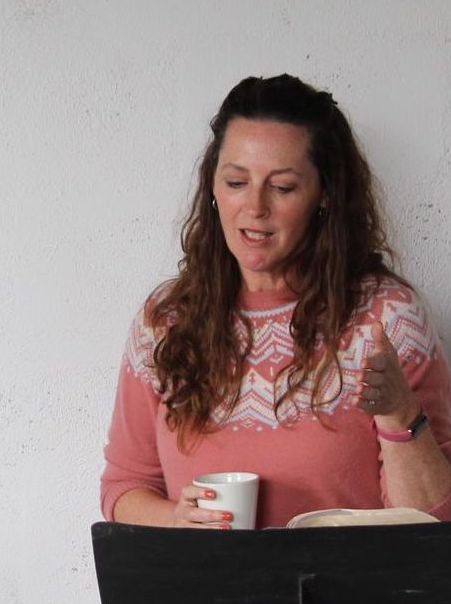
Laurel – wife, mother, and international missionary – began her journey to the nations from small-town Iowa. In the early 2000s, she and her husband, Justin, moved from Iowa to Istanbul where they began working with students. For thirteen years, they worked to spread the gospel among Muslims in the same region where the Apostle Paul established some of the first Gentile churches. Then in 2016, the Lord led them back to the States where Laurel joined the staff at The Vine Church, Madison, focusing on care and discipleship for women.
While preparing for a women’s conference, Laurel struck up a conversation with another staff member about how to study the Bible. He shared what he had learned through WordPartners’ Dig & Discover Principles. As she listened to his summary of the principles, her first response was, “Wow, this is amazing. It’s a simple way to teach these principles, not just to pastors but to lay people in a visual way that is easy to grasp.” It wasn’t long before she began teaching the principles at the women’s conference breakout sessions. She described the impact:
“The response was amazing. Light bulbs started turning on for these women who had grown up in the church. They started to realize there were ways to understand Scripture in a deeper way. There are ways to discern how I am reading, understanding, and applying the text correctly in the context and storyline of Scripture.”
“Wow, this is amazing. It’s a simple way to teach these principles, not just to pastors but to lay people in a visual way that is easy to grasp.”
The discussions went from workshops to deeper discipleship. Some women began to identify and repent of the ways they had strayed from the line of Scripture. Others started to see ways they had imposed their own framework on God’s Word.
The transformation experienced through the women’s conferences began to spread to the rest of the church. After a few years of equipping through conferences and workshops, the principles became part of the church’s DNA.
In late 2019, Justin and Laurel began prayerfully considering another international move to Lasso, Ecuador. There, they would train ministry leaders, help to plant more churches, and restore Ecuadorian communities. Laurel’s focus was specifically on training staff and offering discipleship care to Ecuadorian women. In 2021, they made the move from Madison to the Andes Mountains of Ecuador.
Justin and Laurel experienced a warm welcome, and Laurel discovered a willing spirit among the women. Reflecting on her first months with the women, she recalled, “I am a huge fan of going straight to the Word. For the first few months, we just dug into the Word together.” In an international context like Ecuador, local believers can be overly dependent on outside sources, specifically American missionaries, for interpreting and applying the Bible. By taking the women directly to the Word and listening to the way they studied it for themselves, Laurel could gauge their understanding apart from outside input telling them how to read and understand the text.
She very quickly decided to walk the women on staff through the Dig & Discover Principles. Laurel expressed how these simple principles would empower her sisters in Christ:
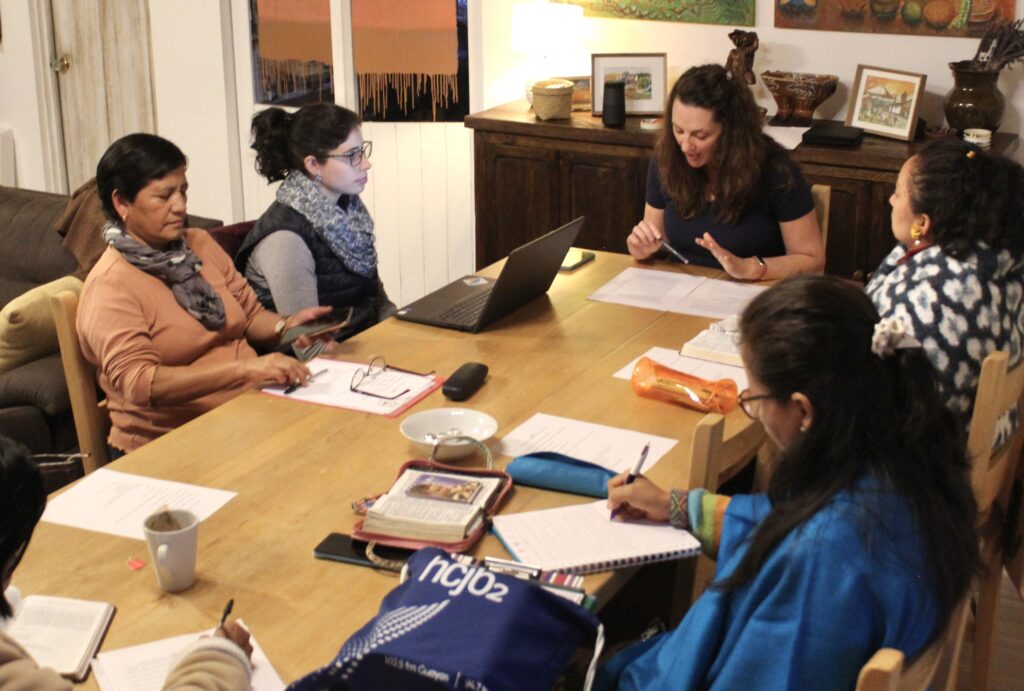 “In a culture where they are used to missionary worship, and everyone follows the white person in the room, I had a deep conviction that I did not want them to do that. I wanted the women to feel capable and be able to understand the text for themselves.”
“In a culture where they are used to missionary worship, and everyone follows the white person in the room, I had a deep conviction that I did not want them to do that. I wanted the women to feel capable and be able to understand the text for themselves.”
The staff spent about six months walking through various books of the Bible. They wanted to grow in learning, studying, applying, and teaching God’s Word to other women. So Laurel invited the women to begin reteaching the principles back to her.
“I wanted to set the expectation from the beginning that they would be teachers,” she explained. “It wouldn’t just be me, but the Ecuadorian women would be teaching other Ecuadorian women. I wanted them to look not to missionaries or the white person in the room or the seminary graduate, but to other . . . women like them.”
“It wouldn’t just be me, but the Ecuadorian women would be teaching other Ecuadorian women.”
Once the staff had a working knowledge of the principles, they decided to invite some of the women from partner churches for a Scripture weekend, walking through Philippians. Leaders from various Ecuadorian churches were brought in a day early to go over the training. In a church culture where missionaries come with answers, leaders from other local churches were concerned when they did not see answers in their workbooks. With a smile in her voice, Laurel recalled that day, “The leaders started asking, ‘Where are the answers? Where is the answer key for all these questions?’ I said, ‘You are going to discover them as you work through the principles.’”
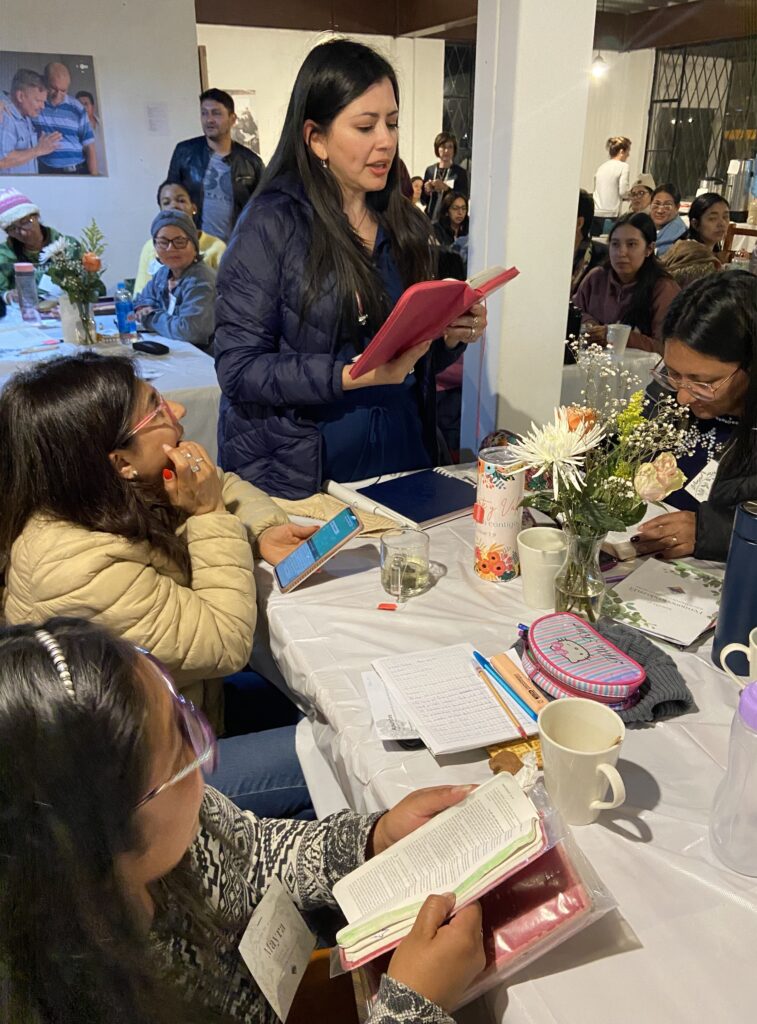 The goal was to welcome thirty women to that first Scripture weekend. By Saturday morning of the training, sixty Ecuadorian women had gathered to learn how to study God’s Word.
The goal was to welcome thirty women to that first Scripture weekend. By Saturday morning of the training, sixty Ecuadorian women had gathered to learn how to study God’s Word.
The result of those first few days of training is best expressed by the Ecuadorian women themselves. One woman traveled eight hours from the jungle by motorcycle and bus to attend the training. She rejoiced in what she had learned:
“I never thought I could read the Bible without a pastor or a missionary present. What I learned this weekend is that I could open the Word of God on my own. And now I know I can read it on my own.”
A pastor’s wife marveled, “I had never thought of the Bible as a whole story. I’ve been studying the words of Jesus over and over, but didn’t understand that it starts with Genesis and that all the Old Testament points to Jesus.”
The seriousness with which Laurel takes this work resonated in her voice as she described the importance of the training:
“My passion is teaching women to teach the women in their churches. I want to help women move away from celebrity dependency. You don’t have to go see a popular women’s teacher to get good teaching. We can equip local women to teach.”
A second training was offered six months later, and attendance pushed the facilities beyond capacity as eighty women filled the room to learn how to interpret God’s Word with God’s heart.
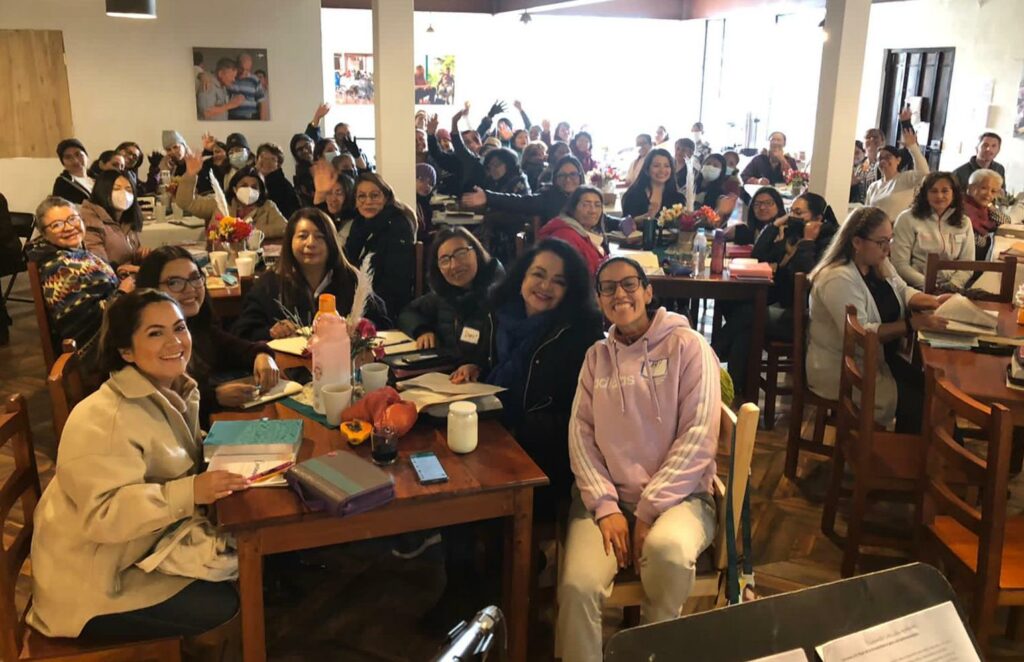
During the second training, the group witnessed the true transformational power of God’s Word. One woman in attendance was on staff at a very small church. She was proud of her status as a church staff person. In her arrogance, she became angry during the training and left. She returned later that day and confessed, “I was embarrassed because I thought I was a Christian. I thought I knew the Word.” Through the course of the weekend, she had realized her ignorance of the Word. More than that, she admitted that she didn’t even understand the gospel. But that weekend, she came both to understand and to believe the gospel.
Reading and interpreting the Bible is not just about knowledge, even though we do come to learn the truth through its pages. When we interpret God’s Word with God’s heart, we are encountering the living God who changes lives. Through the gospel of Jesus Christ, God both humbles and raises up, as our Ecuadorian sister learned that weekend.
As teachers and trainers, we have to spend time with the Word, we have to do the hard work of understanding the Word, and spend the time to fall in love with the Word.
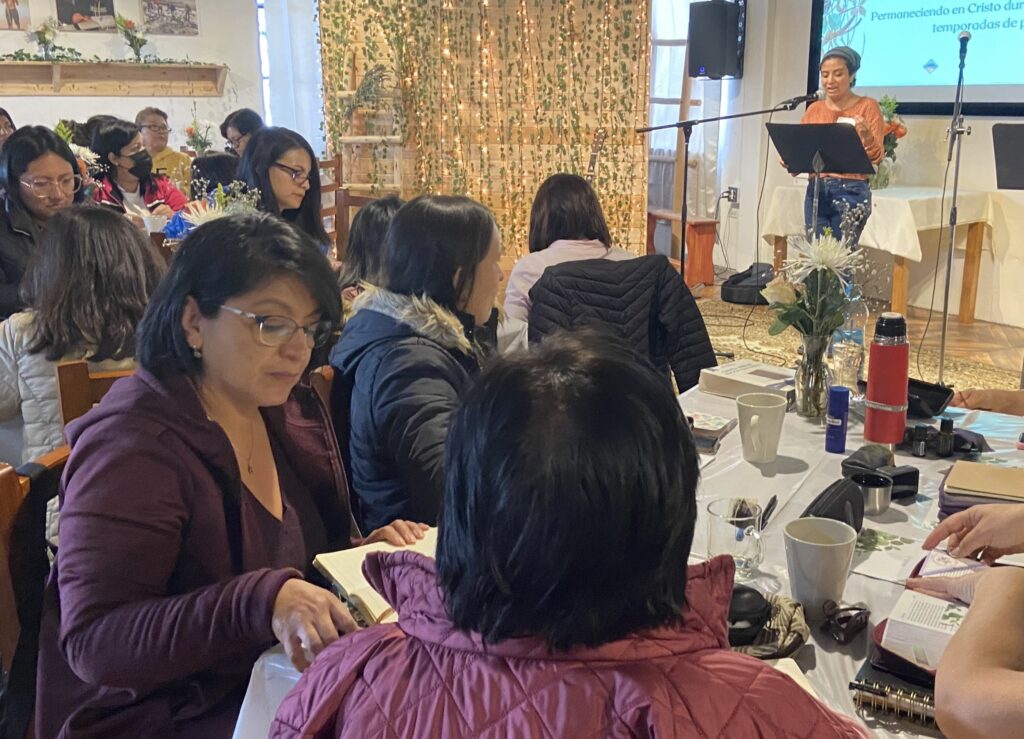 As the workshops move forward, Laurel has begun handing leadership over to the Ecuadorian women. “They are nervous,” she said, “but I’m reminding them that with coaching they will be able to do it. They don’t have to look to me long term.”
As the workshops move forward, Laurel has begun handing leadership over to the Ecuadorian women. “They are nervous,” she said, “but I’m reminding them that with coaching they will be able to do it. They don’t have to look to me long term.”
Laurel longs for women around the world to know God through his Word. She encourages women to “Look for an opportunity to attend a WordPartners workshop.” Even if you’re the only woman in the room, “Learn the principles. Then go through a book of the Bible, applying the principles, digging into each one.” For women who want to train other women, she suggests, “Start small so you can answer lots of questions. The questions will help you become a better trainer.” Then “ask for immediate feedback from some of the women you trust at the end of the training.” She also encourages developing trainers, “Don’t be afraid of teaching women from all kinds of spiritual backgrounds.” Mature sisters will be encouraged, new believers will be equipped, and unbelievers will hear the gospel. You never know how God may use you to transform the lives of others.
Above all, Laurel sees spreading God’s Word as a matter of love:
“I love the Word of God and love teaching the Word of God. You teach best what you love. As teachers and trainers, we have to spend time with the Word, we have to do the hard work of understanding the Word, and spend the time to fall in love with the Word. As we come to love the Word, that love will come out in our training.”